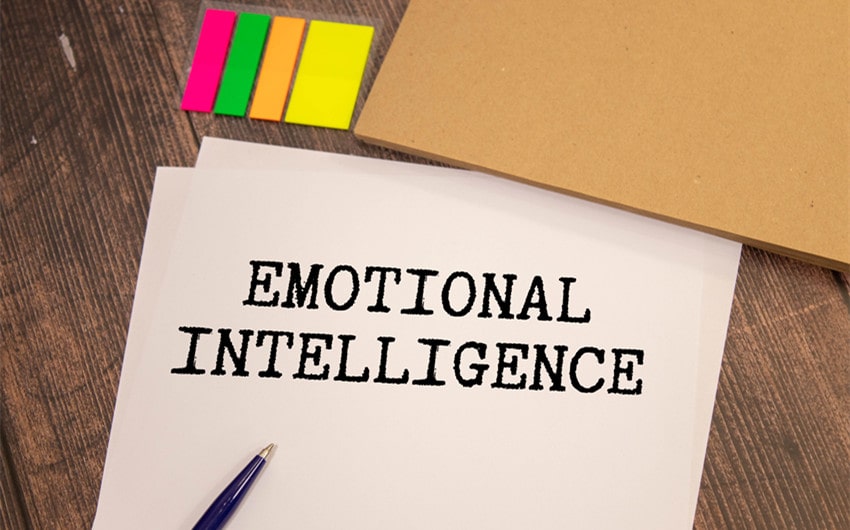Why Emotional Intelligence May Be More Important Than Looks for Long-Term Attraction
Emotional intelligence refers to the ability to identify and regulate one’s own emotions, recognize the emotions of others, and use this awareness to guide thought and behavior. It encompasses four key elements: self-awareness, self-regulation, social awareness, and conflict management skills.
Self-awareness involves recognizing and understanding one’s own emotions and how they impact behavior. It includes having a clear sense of personal strengths, weaknesses, values, and motivations. Self-regulation is the ability to control or redirect one’s own emotions and impulses. It involves managing stress, adapting to changing circumstances, and maintaining a positive outlook despite challenges.
Social awareness incorporates recognizing and understanding the emotions of others. This skill includes empathy, which is the ability to see things from another person’s perspective and understand their feelings. Conflict management skills are essential for navigating interpersonal conflicts effectively. They encompass the ability to manage and resolve disputes constructively, often by finding solutions beneficial to all parties.
Importance in Relationships
Emotional intelligence is vital for fostering healthy, productive relationships. In romantic relationships, it helps partners communicate effectively, manage conflicts, and build trust and respect. Emotionally intelligent people are better at expressing their emotions in a constructive way, creating an environment that supports their partner.
Effective communication is a vital component of emotionally intelligent relationships. It enables people to articulate their feelings and needs clearly, reducing misunderstandings and conflicts. Emotionally intelligent partners also listen actively and empathetically to their counterparts. Conflict resolution skills are another critical aspect.
Such people are adept at resolving conflicts in a manner that strengthens the relationship rather than weakening it. They avoid behaviors like criticism, defensiveness, contempt, and stonewalling, which are detrimental to the relationship. By respecting each other’s boundaries and individuality, emotionally intelligent partners build a strong foundation of trust and respect.
The value of emotional intelligence is evident in various types of relationships. For example, some people prioritize emotional compatibility and mutual goals over conventional standards of appearance. These people might seek unique relationships, such as the scenario where some try to find a sugar daddy. In such cases, emotional intelligence and clear expectations often take precedence.
Impact on Long-Term Attraction
While physical attraction may play a key role in the initial stages of a relationship, emotional intelligence is more important for long-term attraction and relationship success. Emotional intelligence helps maintain a deep emotional connection over time. It allows partners to cope with life’s challenges together, fostering a sense of unity and shared understanding.
Partners with high emotional intelligence create an environment where both people feel safe to express themselves. This emotional safety is essential for building and maintaining a strong bond. Relationships involving emotionally intelligent partners also tend to promote personal growth. These partners are likely to support each other’s development and well-being, leading to a more fulfilling and meaningful relationship.
Global trends and statistics underscore the value of emotional intelligence. According to the 2024 State of the Heart report, global emotional intelligence scores have declined by 5.54% from 2019 to 2023. This decline highlights the importance of focusing on emotional intelligence in different contexts, including personal relationships. The report also notes a gender divide, with women’s emotional intelligence scores rebounding post-pandemic while men’s scores continued to decline. This trend suggests that emotional intelligence can vary across demographics.
Practical Applications and Real-Life Examples
Improving emotional intelligence is a skill that can be developed over time. Practices such as mindfulness, active listening, and seeking feedback are effective ways to enhance emotional intelligence. Mindfulness practices involve focusing on the present moment, engaging each sense, and allowing thoughts and emotions to pass without judgment. Active listening entails fully engaging with another person, understanding their perspective, and responding empathetically. Seeking feedback assists in identifying blind spots and weaknesses, leading to personal growth and better relationships.
In real-life scenarios, emotionally intelligent people exhibit behaviors conducive to healthy relationships. For instance, they engage in debates and disagreements without escalating conflicts destructively. They are capable of reconciling disputes and maintaining a positive relationship dynamic. Additionally, they respect each other’s personal space, privacy, and individuality. This respect is key for building trust and maintaining a strong relationship.
The value of emotional intelligence extends beyond personal relationships to broader social and cultural contexts. In societies where emotional intelligence is valued, people are more likely to engage in constructive communication, empathize with others, and manage conflicts effectively. This can lead to more harmonious and supportive communities.
Measurement tools such as the Mayer-Salovey-Caruso Emotional Intelligence Test (MSCEIT) assess the four branches of emotional intelligence. This test uses both general consensus and expert scoring methods to determine correct answers. Studies indicate that self-report tests of emotional intelligence may offer limited information beyond standard personality questionnaires. However, ability-based measures like the MSCEIT provide a more nuanced understanding of emotional intelligence.
In summary, emotional intelligence is a vital component of long-term attraction and relationship success. It encompasses self-awareness, self-regulation, social awareness, and conflict management skills, all key for building and maintaining healthy relationships. By focusing on developing these skills, people can establish stronger, more resilient relationships that promote personal growth and well-being.







